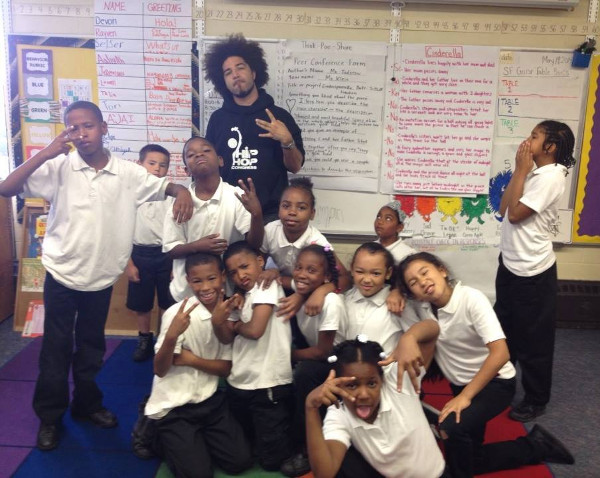
PHOTO/DONATED
By Rahman Jamaal, Rap Force Academy, Founder
REDWOOD CITY, CA. — American education is approaching a critical turning point. Culture is being stripped from our curriculum as fast as computers are replacing instructors. Humanity has entered a digital age where all perspectives are accessible yet teacher-student relationships are suffering. At this crucial juncture, do we allow practicality to dictate our intuitive knowledge, or is there a holistic approach to education that we should be implementing to prepare future generations for the challenges that lie ahead?
Schools are currently challenged with this question. As technology advances, so must economy. As economy evolves, so must education. If education’s main purpose is to prepare us for jobs that can easily become automated, something has to change. That change may have to be so fundamental as to turn the entire education model on its head. 50% of black males in Los Angeles are failing Algebra I… how many know where the word “algebra” comes from? The story of our global knowledge is an integral part of our reason to learn it.
We need to think critically… about the way we have been taught to think. We have been inundated in left-brain training since we stopped using music to teach the basics. Why did this teaching tool become reserved exclusively for those “gifted” enough to make a living at it? Why is music not a continued learning supplement for the subjects we teach?
Eric Booth, author of “How to Become a Virtuoso Educator” describes how during the Industrial Revolution musical instruments were seen as an effective way for children to develop fine motor skills for the factory, not because educators saw any intrinsic value in developing the mind and heart. Right-brain activities like rhythmic patterning & tone recognition fall right in line with emotional intelligence. Until recently, this was too difficult for our left brain to measure. Research now shows arts-integrated learning improves test scores in reading, writing, and arithmetic. It becomes clear as we move from a factory work-base to a digital workspace; we need whole-brain education to solve our problems.
One cultural phenomenon is doing just that. In the last decade, emcees, DJs, dancers, and visual artists have developed independent methods of teaching their highly coveted art forms within schools and afterschool programs. Today’s Future Sound teaches algebra through record-sampling and state-of-the-art beat-making software. Science is now taught through rap cyphers in New York. Rock The School Bells is an educators’ conference featuring artists who use Hip Hop pedagogy to deliver standards-based curriculum that equally stimulates students and academic professionals alike. Hip Hop is organically making learning personal, fun, and socially aware again.
And how could it not? Art teaches culture. Hip Hop is a movement of youth teaching youth in the streets, only now with some wisdom of age. The RZA of Wu-Tang Clan may have said it best at a Hip Hop Chess Federation panel: “The answers to education are there, we just need to start applying them.”
America needs to start educating herself again. It is up to us to lead the way.
